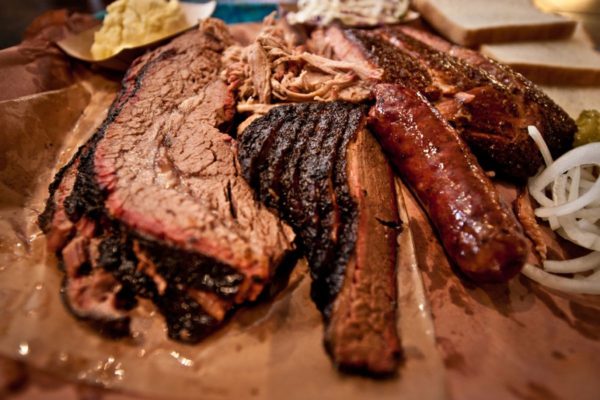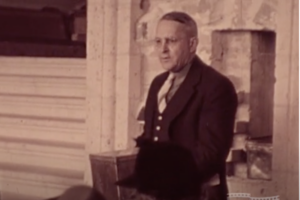For centuries, people have cheated in commerce. In response, society has created systems that enable fair trade for all. In Texas, the integrity of that process is the responsibility of the agriculture commissioner.
Today, the process is being threatened. The Texas agriculture commissioner, Sid Miller, is standing up to the state attorney general, Ken Paxton, who asserts that state law exempts barbecue establishments from the global measurement system used by Texas and across the U.S.
Miller is in the spotlight for defending a system that generally operates quietly in the background. It’s out of sight most of the time because it works so well.
The Texas Department of Agriculture is trying to protect our elegant and affordable system of commerce. We should support those efforts and not let a few bad actors drag the rest of the state’s barbecue purveyors down the slippery slope of having to be dishonest to stay in business.
Nationally, more than $1 trillion of goods and services are bought annually — money spent for a measurable quantity of something: dollars per gallon of milk or pound of ground beef, cents per kilowatt-hour of electricity or yard of silk. When consumers are willing to pay more for something — a faster modem, for example — they inherently believe someone somewhere can actually measure the device to determine that it really is as fast as claimed.
The temptation to adjust measurements to profit the seller has a long and multicultural history.
The Book of Deuteronomy in the Bible says: “You shall not have in your bag differing weights, a large and a small. You shall not have in your house differing measures, a large and a small. You shall have a full and just weight; you shall have a full and just measure …”
During the Warring States period in China (475-221 B.C.), a system of weights and measures was adopted to enable fair commerce and trade.
In many old cities in Europe, you can still see metal rods set in a wall that defined length for sales in that city.
Today, if I’m having trouble making a profit by selling you gasoline at $2.56 a gallon, a simple solution could be to decrease the size of my “gallon.”
The U.S. Constitution requires a defined measurement system, in part to keep the government from being cheated on taxes. At the time of the nation’s founding, different custom houses used different measurement standards. Consistency was key for ensuring fairness.
If we do not insist on consistency, we risk having a system develop in which honest businesses are forced to cheat to compete.
The milk industry of a few decades ago underscores that risk. It was found that dairies in nearly every state, including Texas, were under-filling milk containers of all sizes. Assume that a gallon of milk costs $4. Unscrupulous dairy owners recognized that if they reduced the fill of the jug by 2 percent, they could underprice their competitors by 3 cents a container and make an extra nickel in profit.
As honest dairies began losing money, they could either start cheating, become a whistleblower, or go out of business.
The under-filling of milk containers continued until the dishonesty grew to cover most of the nation. Eventually, the cheating was stopped — and the industry did not get an exemption so each dairy could define its own “gallon.”
The Texas Department of Agriculture is standing firmly on the side of honesty in the sale of Texas barbecue. Their position is that if brisket is advertised at $10 a pound, we can’t allow shop owners to define their own pound.
I doubt that those who want to exempt the Texas barbecue “pound” from the legal definition of a pound believe that every barbecue joint in the state is scrupulously honest. From my travels, however, I suspect most are. The point is it doesn’t take many bad actors to corrupt the entire industry.
Hundreds of years of history teaches us to expect a few bad actors. That’s why we need a system that guarantees accurate measurements are routine.
Robert Hebner is a research professor at The University of Texas at Austin. Previously, he worked for the National Institute of Standards and Technology, where he was its senior official briefing Congress on the milk problem.
A version of this op-ed appeared in the San Antonio Express News, Austin American Statesman, and the Waco Tribune Herald.
To view more op-eds from Texas Perspectives, click here.
Like us on Facebook.




